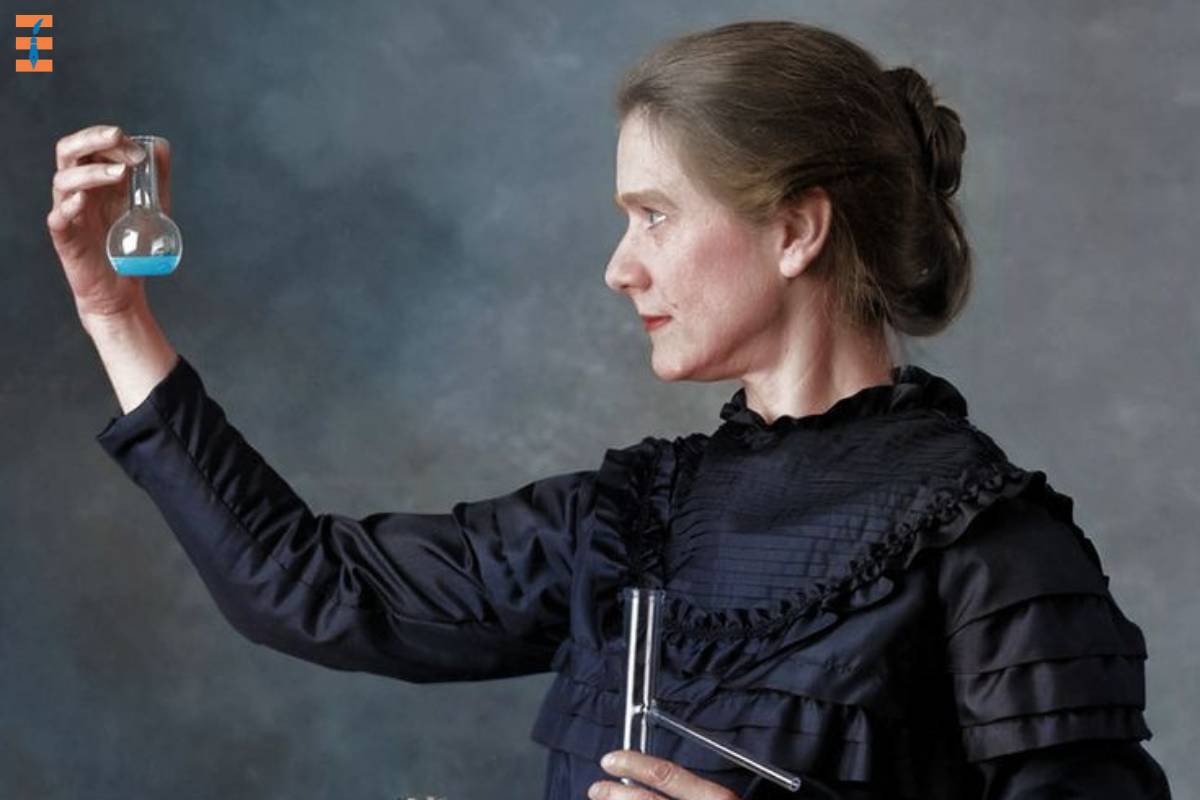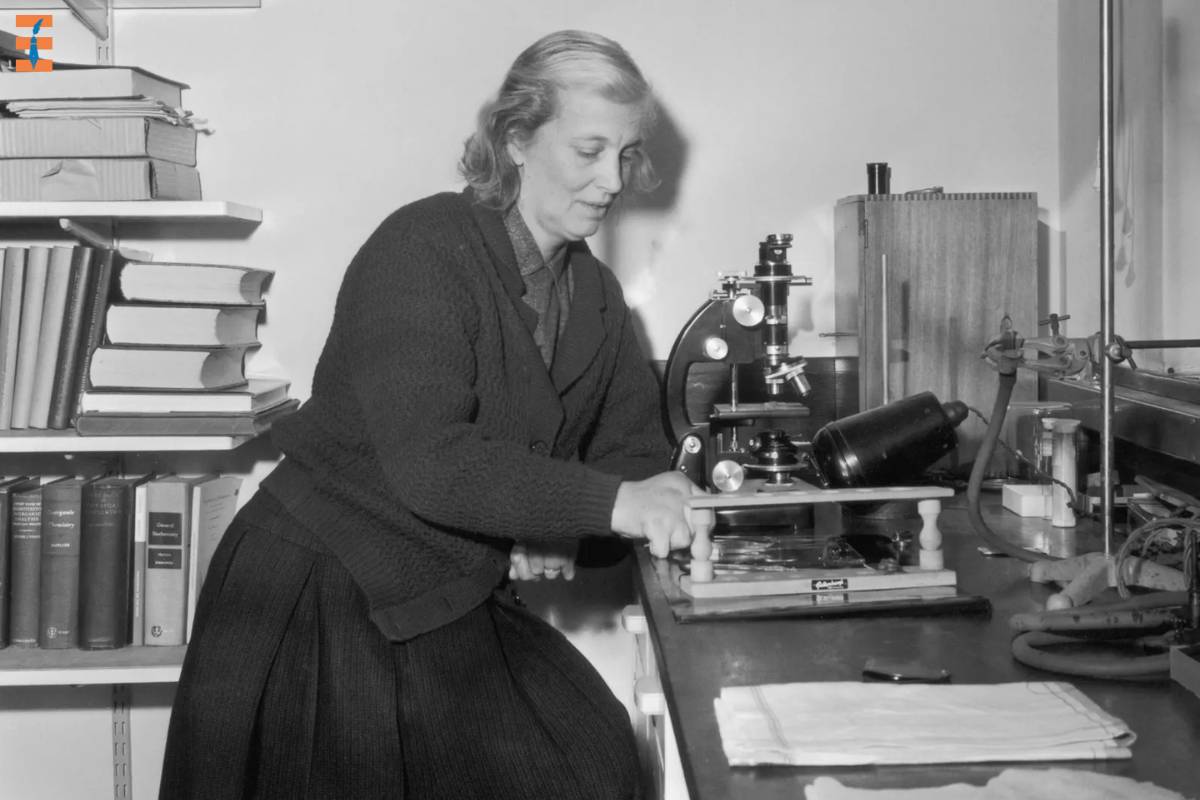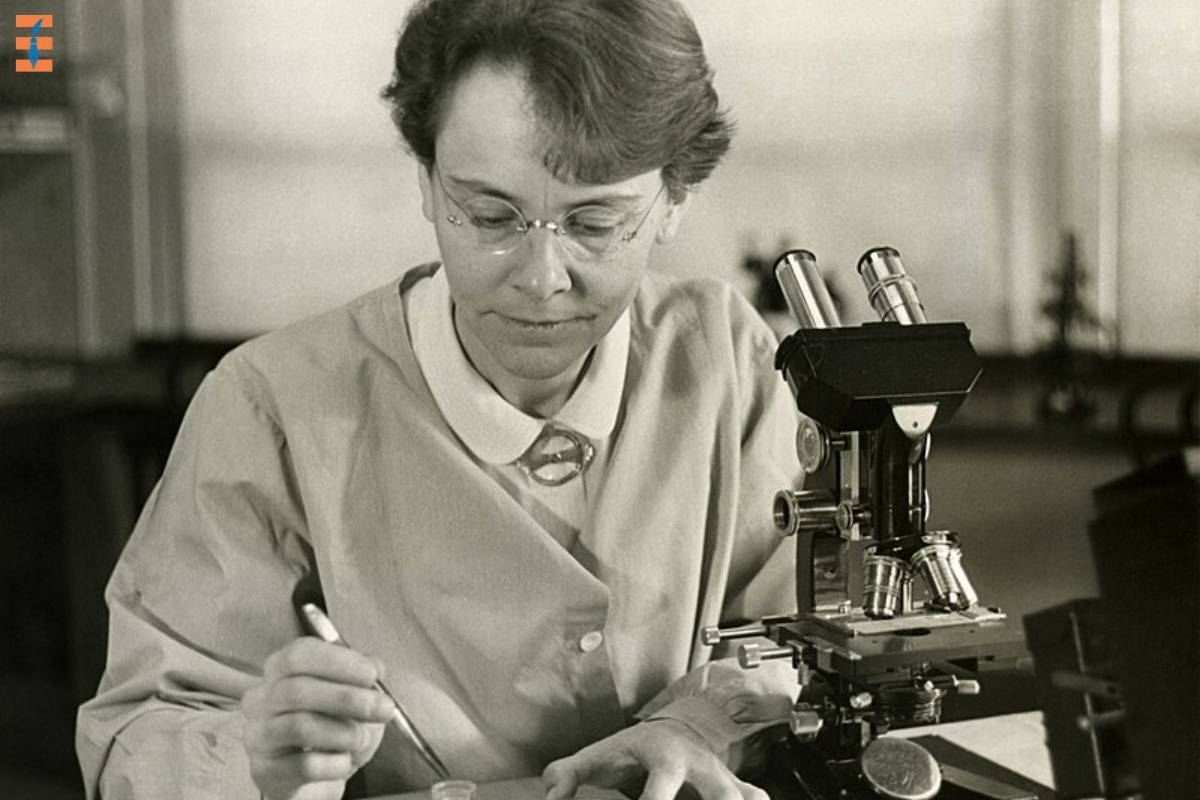Throughout history, women have played a crucial role in advancing scientific knowledge despite facing numerous obstacles. From Marie Curie’s groundbreaking research on radiation to Rosalind Franklin’s significant contributions to the understanding of DNA structure, women scientists have made remarkable and lasting impacts on various scientific fields. This article aims to acknowledge and celebrate the accomplishments of eight extraordinary women scientists whose pioneering work has had a profound influence on both science and society.
Following are the 8 women scientists who made history:
1. Marie Curie (1867–1934)
Marie Curie, a Polish-born physicist and chemist, is perhaps one of the most famous women scientists in history. She made groundbreaking discoveries in radioactivity, a term she coined herself. In 1903, Curie became the first woman to win a Nobel Prize, jointly awarded with her husband Pierre Curie, and physicist Henri Becquerel for their research on radioactivity. She later received a second Nobel Prize in Chemistry in 1911 for her discovery of the elements polonium and radium.

Curie’s work revolutionized the field of chemistry and laid the groundwork for advancements in nuclear physics and medicine. Despite facing discrimination as a woman in science, her dedication and perseverance paved the way for future generations of female scientists.
2. Rosalind Franklin (1920–1958)
Rosalind Franklin was a British biophysicist whose work was instrumental in deciphering the structure of DNA. Using X-ray diffraction techniques, Franklin produced high-quality images of DNA molecules, which provided crucial insights into their helical structure. Although her contributions were essential to the discovery of the DNA double helix, Franklin’s role was often overlooked during her lifetime.
It was Franklin’s famous “Photo 51” that provided critical evidence for the double helix structure of DNA, a discovery that ultimately led to James Watson and Francis Crick’s Nobel Prize-winning model. Despite the challenges she faced, Franklin’s legacy as a pioneering scientist continues to be recognized and celebrated.
3. Ada Lovelace (1815–1852)
Often referred to as the world’s first computer programmer, Ada Lovelace, a Woman Scientist, was a mathematician and writer who collaborated with Charles Babbage on his early mechanical general-purpose computer, the Analytical Engine. Lovelace’s notes on the Analytical Engine, published in 1843, included what is now considered the first algorithm intended to be processed by a machine.
Lovelace’s visionary insights into the potential of computing laid the foundation for modern computer programming. Her work exemplifies the intersection of mathematics, technology, and creativity, and she remains an inspiration to women in STEM fields worldwide.
4. Dorothy Crowfoot Hodgkin (1910–1994)
Dorothy Crowfoot Hodgkin was a British chemist renowned for her pioneering work in X-ray crystallography. She made significant contributions to the understanding of the structures of important biochemical substances, including penicillin, vitamin B12, and insulin.

In 1964, Hodgkin became the third woman to receive the Nobel Prize in Chemistry for her groundbreaking work on the structure of important biochemical compounds using X-ray crystallography. Her innovative research techniques have had a lasting impact on the fields of chemistry, biology, and medicine.
5. Jane Goodall (1934–Present)
Jane Goodall is a British primatologist and anthropologist renowned for her groundbreaking research on the behavior of wild chimpanzees in Tanzania. Her pioneering work challenged traditional scientific beliefs about the distinction between humans and animals, demonstrating the complex social and emotional lives of chimpanzees.
Goodall’s research has revolutionized our understanding of primate behavior, conservation, and the interconnectedness of all living beings. Through her tireless advocacy and environmental activism, she continues to inspire future generations to protect and preserve the natural world.
6. Mae Jemison (1956–Present)
Mae Jemison is an American engineer, physician, and former NASA astronaut who made history as the first African American woman to travel in space. In 1992, she flew aboard the Space Shuttle Endeavour as a mission specialist, conducting experiments in materials science, life sciences, and human adaptation to space.
Jemison’s pioneering achievements shattered barriers and inspired a new generation of diverse astronauts and scientists. She continues to advocate for STEM education and the advancement of space exploration as a means of fostering innovation and global collaboration.
7. Barbara McClintock (1902–1992)
Barbara McClintock was one of the American Women Scientists and cytogeneticists who made groundbreaking discoveries in the field of genetics. Her research on the genetics of maize (corn) led to the discovery of transposable elements, or “jumping genes,” which can move from one location to another within the genome.

McClintock’s work challenged conventional wisdom and laid the foundation for modern genetic research. In 1983, she was awarded the Nobel Prize in Physiology or Medicine for her pioneering discoveries in genetics, becoming the first woman to receive an unshared Nobel Prize in that category.
8. Chien-Shiung Wu (1912–1997)
Chien-Shiung Wu, a pioneering figure among Women Scientists, was a Chinese-American experimental physicist who made significant contributions to the field of nuclear physics. Often referred to as the “First Lady of Physics,” she is best known for her groundbreaking experiment, conducted in collaboration with colleagues Tsung-Dao Lee and Chen-Ning Yang, which disproved the principle of parity conservation in weak nuclear interactions.
Despite facing discrimination as a woman and an immigrant, Wu’s contributions to physics were widely recognized and celebrated. She received numerous awards and honors throughout her career, including the inaugural Wolf Prize in Physics in 1978.
Conclusion
The role of women scientists in shaping our understanding of the natural world and driving scientific progress cannot be overstated. Notable figures like Marie Curie and Rosalind Franklin have made significant contributions in their respective fields, leaving a lasting legacy.
Despite facing obstacles and prejudice, these women persevered and exceeded expectations, becoming sources of inspiration for future generations of scientists. Their achievements highlight the importance of diversity and inclusivity in the scientific community, underscoring the need to acknowledge and appreciate the valuable contributions of women in STEM.
As efforts continue to promote equality and representation in science, it is crucial to honor and remember the remarkable accomplishments of these pioneering women scientists. Their contributions have had a profound impact and continue to influence the scientific community today.
Also Read: Global Movement Gathers Pace for Universal Free Education










